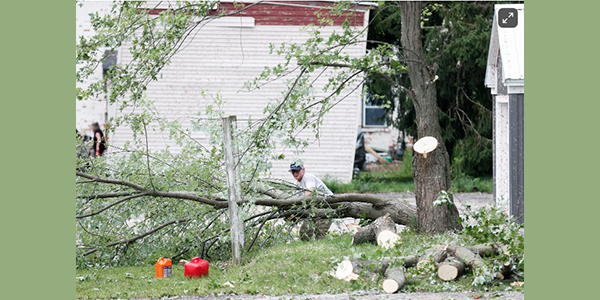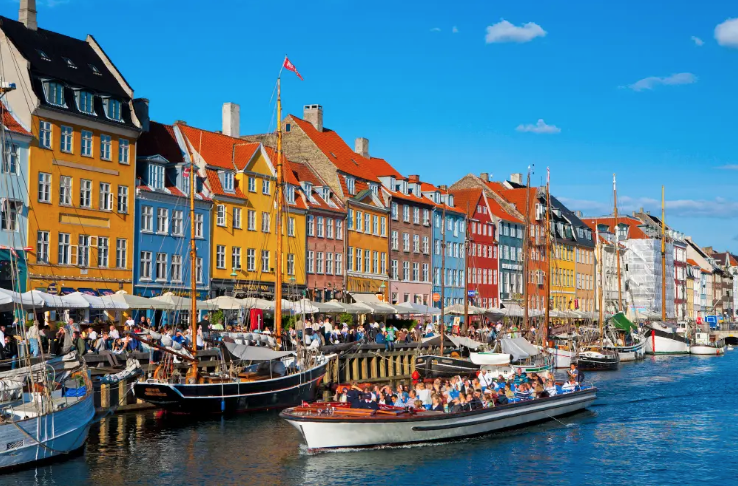Jay Kimball is the manager of the Odd Fellows Hall and founder of 8020, a business which focuses on public speaking and working with clients to cause breakthrough thinking on how business and government can thrive by being more sustainable.
Kimball recently expanded his public speaking forum by posting to Open Salon.com.
His post was the first in a series that will address the general topic “Navigating the Economic Perfect Storm. ” Future posts will cover topic areas, such as:
• Sustainability, healthcare, energy, water, climate change, food
• How our local community is finding ways to innovate in a declining economy
• Emerging trends that will challenge us in the 21st century, and ways of innovating solutions that can help
• Examples of businesses and governments that are “thinking different” about how to thrive during challenging times.
Kimball’s post commented on Nobel Laureate and Columbia University Economics professor Joseph Stiglitz’ recent interview.
At the end of his post, Kimball comments:
“For me, what Stiglitz is getting at is: We grow what we measure — GDP (Gross Domestic Product) — and because we are measuring the wrong stuff, we are growing wrong.
It seems to be in our DNA to want to “grow,” but like a garden, don’t we have a choice about what we grow? Are there ways we can grow our economy that restore abundance rather than consume it? What are the essential things to measure so that we are growing good things?
What do you think? What would you like to see grow? What should we be measuring?”
Kimball’s post was chosen as “Editor’s Pick” and they have posted it on their home page, giving it more widespread access, and offering readers the opportunity to rate his commentary. The post can be found at:
https://open.salon.com/blog/jay_kimball
We have included the post below:
“My wife and I live on an island in the Pacific Northwest. We are in a county that has the lowest working wages in the state. As you can imagine, there is a lot of belt-tightening going on as the economy craters.
For now, what I am thinking about is something Joseph Stiglitz said last year in an interview at the Asia Society in New York City. …
Toward the end of the interview, talking about GDP, he describes the dramatic negative side-effects a metric like GDP can have on societal well-being. In short, something as simple as a measurement can lift a society up, or crush it.
Here is what Professor Stiglitz said:
What We Measure Effects Our Behavior
Accounting frameworks effect behavior. More generally, information effects behavior. What we gather our information about, and how we describe success, effects what we strive for. If GDP is what we think is success, people will strive for growing GDP. Politicians, for example, will then describe how they increased GDP x%, creating a sense of importance to the measure. By doing that though, they focus policies on things that will increase GDP.
We have identified a lot of ways in which GDP is not a good measure of economic performance or societal well-being. So we are working with others to try and focus a global conversation about alternative measures, and also come up with some summary accounting frameworks and statistics that more effectively represent the economic realities on the ground.
Measuring the Middle Class
For example, GDP doesn’t tell you about what happens to the typical citizen. This is an increasing problem because when you have growing inequality in society, you can have GDP going up, as it has in the US, but most people are getting worse off. Not just poverty going up, but the median income – 50% or more of people getting worse off.
We ought to know what’s happening to the median person. It’s very hard to find statistics about that.
Green GDP
There needs to be a focus on what we call “Green GDP” – taking account of environmental degradation and resource depletion. This is particularly important in developing countries that may, for example, be growing by cutting down their forests. But once they cut down the forests, there’s nothing there. And so unless they do something, it’s not sustainable. GDP tells you nothing about sustainability. Another example – the IMF thought Argentina was doing great in the early 1990s. In looking at the data though, in a more fine grained way, we found that their growth was not sustainable. If you only looked at GDP, you would not have realized that.
There are ways that you can adjust for depletion of natural resources and degradation of the environment. If you do that, China’s growth, for example, gets significantly lowered. It’s still doing well, but it is much lower than it otherwise would have been.
Special Interests – The Invisible Hand
Here’s an interesting story about the role of special interests: When we tried to push for this (Green GDP), and people in the Department of Commerce were excited about doing this, the coal industry basically threatened to pass a proviso to take away funding for any research that would support these alternative measures. Because they knew that Green GDP would not be good for the coal industry. That reinforced our belief on why it is important to measure these things.
GDP and GNP
Here’s another example… the difference between GDP and GNP (Gross National Product). Those of you who are older may remember GNP and around 1990 they switched to GDP. Well, everybody said it’s just a little bit of difference. It turns out that it makes a great deal of difference for many countries. And I am sure somebody is going to write an article about whether there was a political context to the switch. GDP looks at the output within the country. GNP looks at the income of the people, in the country. When you started privatizing a great deal, you had economic activity within the country, but the income from that economic activity more and more was going to people outside the country. So you have a mine, for example, somebody taking [resources] out of the mine, leaving behind environmental degradation, getting royalties in some cases of 1 or 2 percent, so almost none for the income from the mine goes to people in the country. So GDP is going up, but any measure of Green GNP would show the country going down. There are some really dramatic examples like in Papua New Guinea, where this actually is true.
GDP, Prisons and Healthcare
Two dramatic examples – The US has about 10 times as many people per capita in prison as other advanced industrial countries. That contributes to our GDP, because we have to spend money incarcerating them. In some states, we are spending as much on building prisons as we are on universities. That’s good for GDP, but any measure of societal well-being says it’s not good to have so many people in prison. And it’s a symptom of something dysfunctional. We can have a long discussion about what it is that’s dysfunctional, but the point is, it’s not positive.
Another example – We spend more on healthcare than any other country, as a percentage of GDP, yet our health outcomes are much lower than in other advanced industrial countries, and actually, lower than many developing countries. Well, the extra money we spent on healthcare shows up as a contribution to GDP. If we got more efficient our GDP could go down. But that is clearly not… you don’t want to… You’re looking at the wrong thing.”
END OF INTERVIEW
…
For me, what Stiglitz is getting at is: We grow what we measure (GDP), and because we are measuring the wrong stuff, we are growing wrong.
It seems to be in our DNA to want to “grow,” but like a garden, don’t we have a choice about what we grow? Are there ways we can grow our economy that restore abundance rather than consume it? What are the essential things to measure so that we are growing good things?
What do you think? What would you like to see grow? What should we be measuring?
For more information on Kimball’s organization, go to 8020vision.com








Hi Margie,
Thanks for bringing this over to your wonderful site. Your big hearted approach to building community through this new media channel (as opposed to ad-laden print media) is excellent. I don’t know where you find the time to fill BullWings with the rich content and reportage that you have assembled here. But you do. You are amazing!
jay
Hi Margie,
Thanks for bringing this over to your wonderful site. Your big hearted approach to building community through this new media channel (as opposed to ad-laden print media) is excellent. I don’t know where you find the time to fill BullWings with the rich content and reportage that you have assembled here. But you do. You are amazing!
jay